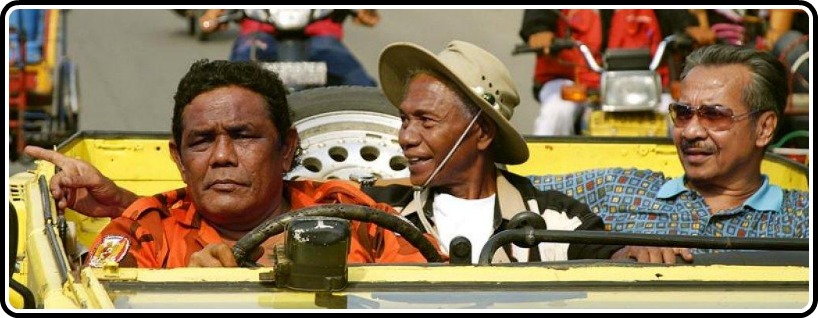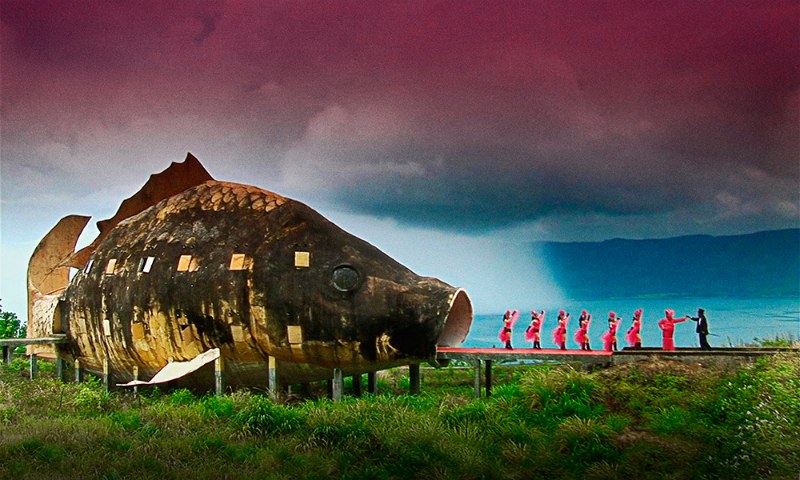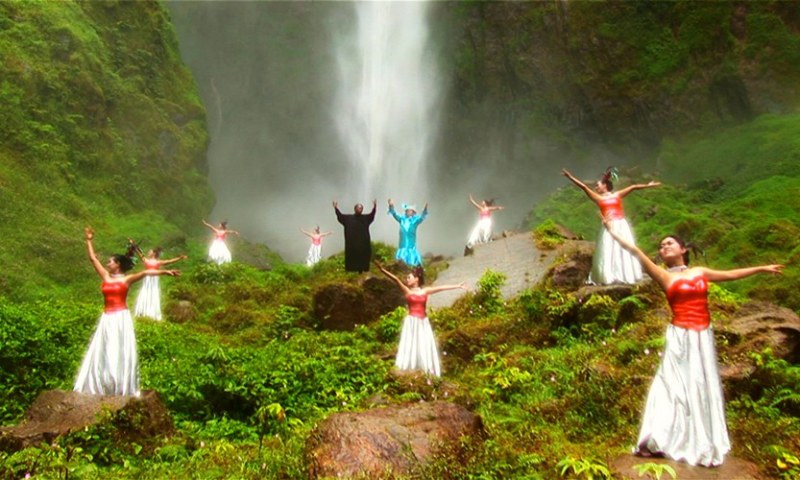
Following a failed coup in the mid-1960s, the Indonesian government officially recruited a squad of gangster to oversee an aggressive death squad with the aim of ridding the country of the communist influence they declared to be responsible. In the time that has followed, the squad he founded has flourished into, essentially, an independent army, one that has the blessing of the state while maintaining such a distance as to allow the state to be held responsible for its actions. Anwar Congo, the chief gangster at the time, founder of that Pancasila Youth militia, is personally estimated to have killed 1000 people, though the movement of which he took part brought about untold deaths (The Act of Killing puts that number in the millions). He helped create a system wherein his “soldiers” could simply walk down the street and slaughter who they like. They brag about it, take pride in it. In 2012, they stride through the streets dressed like superstars, revered (or of fear or genuine admiration) wherever they go. They have no fear that they will ever be held responsible in any official capacity. They aren’t criminals, after all, at least not in Indonesia – they are heroes.
Joshua Oppenheimer’s documentary does not merely catalogue the history and current state of things, however, though his account and particular eye for the sheer absurdity of the pervasive evil in the country is astonishing. The real hook of the film, though, is that he asked Anwar and his friends to recreate, in any cinematic style they wish, the killings they best remember. Early in the film, they talk about how American films inspired their carnage, so what better way for these people to celebrate their accomplishments than through what they see as the ultimate act of celebration?

What emerges becomes far more disturbing than even its premise would indicate, as Anwar quickly subverts the assignment in favor of reenacting his very state of mind, both in, well, the act of killing and in the toll it has taken on him personally in the decades since. Forced to directly confront his actions through the reenactments, he gradually moves from celebratory to melancholy to tremendously depressed as he comes to fully recognize the widespread terror he has wrought. So the reenactments become not just horrific reflections on their own, but he starts to stage recreations of his dreams and the punishment he believes he is eventually owed. Neil Gaiman’s Sandman has an interesting passage (perhaps not original to it, but hey, I can’t read everything) that posits that Hell is there for people who believe themselves to be deserving of it, and the Hell that Anwar concocts is certainly not beyond such grasp.
All the while, however, everyone closest to him, save for Oppenheimer, keeps reenforcing the same self-image – that he was a conqueror, a mighty warrior who saw the Communist influence and wiped it out, building up a national image for which all Indonesians should be proud in the meantime. The juxtaposition creating a terrifying tension, especially as one comes to realize that Anwar still has to live with everything he’s come to face long after the documentary crew will leave. Perhaps he will simply drift back towards the person he was at the start of the film, or perhaps this experience has left real and lasting change. That his less terrifying reenactments portray him being honored as a God in the afterlife certainly point to an outlook that is not exactly stable, but at the very least, what we come to know of Anwar makes him seem like a man of unfathomable complexity due to circumstances very few people will ever find themselves in, with a thousand layers that he may never dare to pull back.

More than anything, that is the essential power, at least for me, of Oppenheimer’s film – recognizing that a mass murderer (and not merely someone who ordered killings, but personally killed hundreds of people) is still a human, and how unbelievably horrifying that is. Oppenheimer has found the perfect expression of this, one wholly cinematic and ideally suited to its subject, that it so quickly transcends the documentary form, and most of cinema in general. It really is a league all its own, and is one of the year’s absolute essential films.
The Act of Killing opens Friday, July 19th in New York at the Landmark Sunshine, and Friday, July 26th in Los Angeles at the Landmark NuArt and Washington, DC at the Landmark E-Street Cinema. It will expand nationally throughout August.



